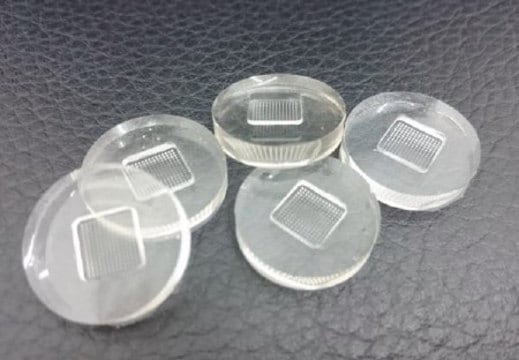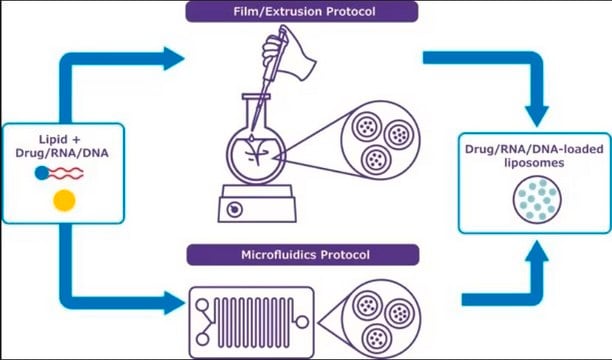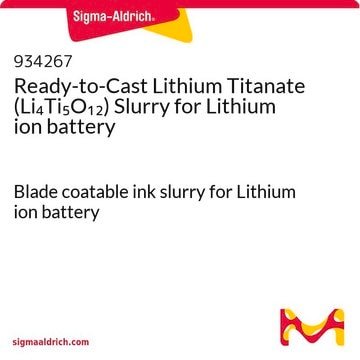All Photos(1)
About This Item
Empirical Formula (Hill Notation):
C46H72Cl4N3O8P
CAS Number:
Molecular Weight:
967.86
UNSPSC Code:
12161503
NACRES:
NA.21
Recommended Products
Quality Level
Assay
≥90%
form
solid
color
orange to dark red
storage temp.
−20°C
SMILES string
[O-]P(OCC[N+](C)(C)C)(OC[C@H](OC(CCCC1=CC(Cl)=C(C(Cl)=C1)/N=N/C2=C(C=C(C=C2Cl)CCCC)Cl)=O)COC(CCCCCCCCCCCCCCCCC)=O)=O
General description
The NanoFabTx Photoactivatable Lipid, redAzoPC is a red-light photoswitchable lipid for controlled and targeted drug delivery. The tetra-ortho-chloro-azobenzene of redAzoPC can be isomerized from the cis to the trans conformation at 660 nm light. LNPs prepared using the NanoFabTx™ Photoactivatable Lipid, redAzoPC result in controlled drug release following deep red light irradiation.
Application
Lipid nanoparticle and liposome drug delivery systems
Features and Benefits
- Similar drug loading, encapsulation efficiency, size, and polydispersity to non-photoswitchable lipids
- Light-induced drug delivery
- Targeted and controlled release
- Overcomes limitations associated to UV-switchable lipids
Legal Information
NANOFABTX is a trademark of Sigma-Aldrich Co. LLC
Storage Class Code
11 - Combustible Solids
WGK
WGK 3
Flash Point(F)
Not applicable
Flash Point(C)
Not applicable
Choose from one of the most recent versions:
Certificates of Analysis (COA)
Lot/Batch Number
Don't see the Right Version?
If you require a particular version, you can look up a specific certificate by the Lot or Batch number.
Already Own This Product?
Find documentation for the products that you have recently purchased in the Document Library.
Tufan K Mukhopadhyay et al.
Current opinion in pharmacology, 63, 102202-102202 (2022-03-13)
Many aspects of cell signaling are controlled by lipids. Several signaling lipids have been functionalized with an azobenzene photoswitch to control underlying signaling dynamics with light. Herein, we provide an overview of signaling photolipids developed to date focusing on their
Johannes Morstein et al.
Chembiochem : a European journal of chemical biology, 22(1), 73-83 (2020-08-14)
Photoswitchable lipids are emerging tools for the precise manipulation and study of lipid function. They can modulate many aspects of membrane biophysics, including permeability, fluidity, lipid mobility and domain formation. They are also very useful in lipid physiology and enable
Nisha Chander et al.
Small (Weinheim an der Bergstrasse, Germany), 17(21), e2008198-e2008198 (2021-04-22)
Encapsulation of small molecule drugs in long-circulating lipid nanoparticles (LNPs) can reduce toxic side effects and enhance accumulation at tumor sites. A fundamental problem, however, is the slow release of encapsulated drugs from these liposomal systems at the disease site
Our team of scientists has experience in all areas of research including Life Science, Material Science, Chemical Synthesis, Chromatography, Analytical and many others.
Contact Technical Service








